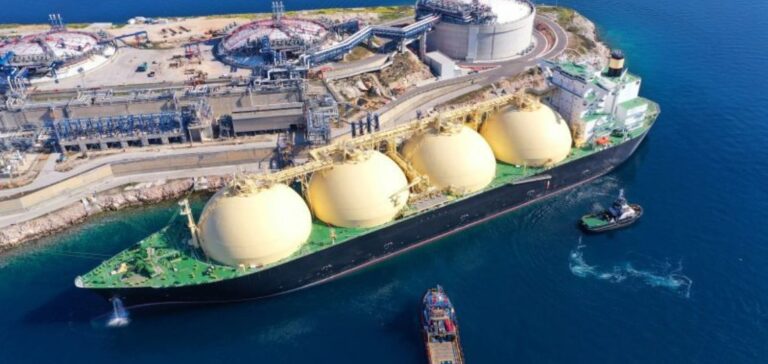When signs appeared in early 2022 that Russia’s gas supply to Europe could disappear, Asian LNG (liquefied natural gas) importers were forced to fight for every molecule.
Asian energy strategy: Diversification of alternative fuel sources.
Asian governments and power utilities have made a strategic decision to increase all other available alternative fuel sources.
This included nuclear power, renewables, coal and fuel oil, and prioritizing domestic coal and natural gas production. Fuel supplies were strengthened by restarting power plants, postponing the decommissioning of old facilities and, in some cases, eliminating demand from non-critical sectors.
Over a year later, the collective result of these measures has been to reduce Asian utilities’ dependence on LNG, mainly in the power sector, and to keep LNG spot prices stable. Most importantly, these measures help regional utilities maintain network stability amid the sporadic heat waves that have swept across various parts of Asia in recent months.
Cheaper, more viable fuel sources have also reinforced emerging market claims that LNG remains an expensive energy source in regions such as South Asia and Southeast Asia, despite lower prices in 2023. And that replacing coal with gas in the long term is not just a price issue, but also a wider energy security issue.
Analysis of the low use of LNG in Asia despite falling prices.
To date, LNG traders and importers still expect winter peak demand to be both the sweet spot and the starting point for LNG demand and prices, while other fuel sources will be insufficient to meet rising demand. Regional variations The lack of greater use of LNG in Asia, despite falling prices, also needs to be analyzed in the local context.
In North Asia, mainly Japan, Taiwan and South Korea, LNG is not unaffordable, and buyers like Japan have been willing to pay exorbitant prices for fuel during national emergencies, such as the Fukushima crisis, to keep the lights on. However, Japan and South Korea have embarked on a major expansion of renewable and nuclear energies. According to data from S&P Global Commodity Insights, Japan’s share of electricity generation from renewables has doubled from 6% in 2017 to around 12%, and is set to rise further.
Malaysia, Indonesia and Brunei are grappling with declining gas production, but must also contend with LNG exports and growing domestic demand. For the power sector in Peninsular Malaysia, from March to May, the conversion from gas to coal of around 1 aGW per year brought coal-fired generation closer to capacity, said Andre Lambine, senior analyst at S&P Global, in a recent analysis.
Opportunities for transitioning from gas to coal in the face of rising gas prices.
For new LNG importers like Vietnam and the Philippines, price is a decisive factor. In Vietnam, cheaper thermal coal is needed in 2023 to compensate for declining hydroelectric output, led by lower water levels, which have fallen by 30% to 40% year on year at hydroelectric dams in northern Vietnam, said a PV Gas representative.
India and China India and China are two economies with much greater potential to switch from gas to coal, although much of India’s gas-fired power generation capacity remains under-utilized due to high prices. Both countries have also responded to the Russian-Ukrainian crisis by significantly increasing domestic coal production to manage fuel security, in addition to coal imports.
“In Asia, the two largest coal importers, India and China, are better prepared for this year’s heat wave to avoid a repeat of the 2022 crisis,” according to S&P Global. “In addition to robust domestic coal supplies in India and China, both countries have been rapidly sourcing imported thermal coal as Indonesia’s production has been healthy and China has reopened the door to Australian thermal coal imports,” S&P Global reported in its July edition of International Thermal Coal Market Forecast.
“China has doubled its thermal coal imports, while India’s imports rose by around 5% in the first five months of 2023,” according to S&P Global. “With poor economic performance in China this year, it’s more economical to use coal for power generation to keep costs lower,” said a China-based analyst from a power utility.
LNG use in Asia: driven by coal replacement regulations and non-energy needs.
One trader said that Chinese buyers would be interested in purchasing LNG at around $10/MMBtu, and the current price of LNG was twice that of thermal coal in China, making coal a much more affordable option. Recent government announcements also indicate that China intends to rely on surplus coal to meet electricity demand this summer, while hydropower recovers.
Future uptake of LNG Some of the fuel supply safeguards in the current energy crisis will be temporary and may disappear once Europe’s LNG supply normalizes, but others, such as the rise of nuclear power in Japan and South Korea, and renewables will be maintained.
According to market participants, this has several repercussions on the use of LNG (liquefied natural gas) in Asia, even at normalized prices. LNG demand in the power sector will need to be stimulated by regulations to replace coal, such as the Just Energy Transition Partnership funding for Indonesia and Vietnam, and where gas-based power can support demand reduction at peak times and as a base load for renewables. The other key variable in LNG demand is non-energy, non-heating demand, where it doesn’t have to compete with coal, such as fertilizers, urban gas distribution and transportation.






















